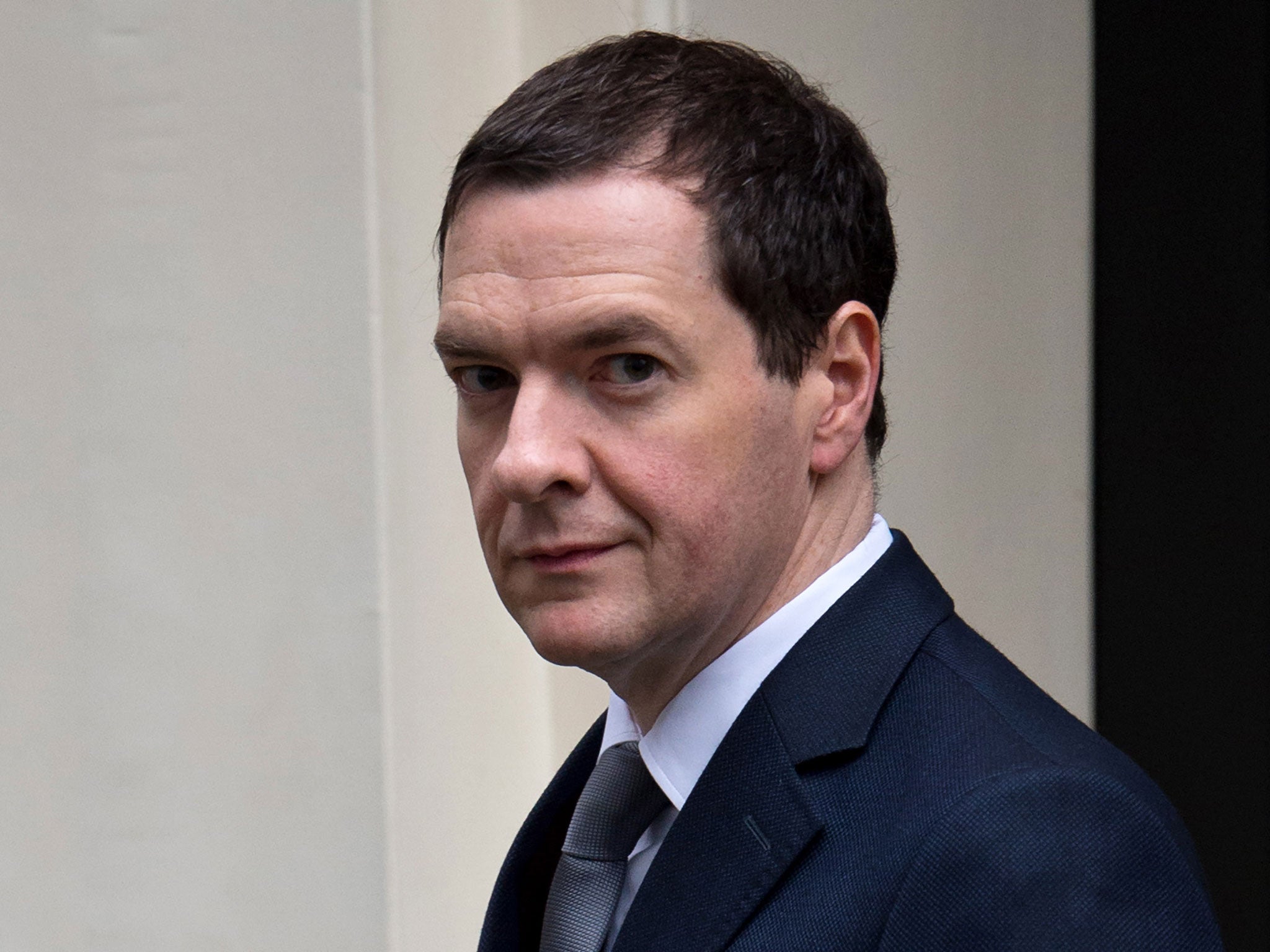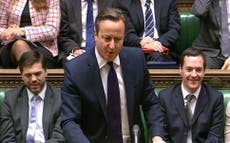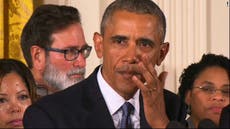It is shamefully clear now that Osborne has let the banks off the hook
Since the general election, the Chancellor has met privately with the bankers five times


The banks are no longer in the doghouse – or, at least, not so far as the government is concerned. Never mind that their manipulation of financial markets against the interests of their customers is still fresh in the mind and that the courts are handing down prison sentences for those found guilty. Forget all that stuff about high-street banks mis-selling financial products to their customers, you and me in other words, for which they have had to set aside a colossal £26bn to meet claims. It is, apparently, time to move on.
Of course, there has been no announcement as such. This is a case where you look at the facts and draw your conclusions. For me, the final proof came with this week’s announcement by one of the City’s two regulators, the Financial Conduct Authority (FCA), that it was abandoning its plan to inquire into the culture of banks. Compare this withdrawal with what this same regulator said less than a year ago about the importance of culture.
“Our Risk Outlook 2014/15 noted how important embedding cultural change would be to regaining the trust of consumers, as well as achieving our objectives. This remains true for the coming year and the foreseeable future… We continue to address conduct issues arising from failures in firm culture and are committed to ensuring this momentum is not lost.” Now this commitment has gone.
How did this come about? The most plausible starting point is April 2015. With just a few weeks to go before the General Election, the giant bank HSBC announced that it had ordered a review into whether it should move its headquarters out of Britain, thus damaging London’s reputation as a global hub for finance and investment.
The Chancellor of the Exchequer, George Osborne, cannot have liked the sound of this. Threatening to move domicile is frequently used by large international companies as a way of bringing pressure to bear on national governments. Just seven weeks later in a Mansion House speech in June, Mr Osborne made plain his discomfort. He said he wanted Britain to be “the best place for European and global bank HQs”, adding: “It’s in our national interest to be so.”
At the same time, the door to the doghouse was to be left open: “Our financial services industry in Britain has, in recent years, been seen as part of the problem – now it must become part of the solution… Now we can raise our ambition and ensure we have the best, and most competitive, financial services in the world”.
Except that the Chancellor himself doesn’t have the key in his own pocket. It is the FCA which opens or closes the door. And under its tough chief executive, Martin Wheatley, the prospect of the lock being turned seemed remote. So Mr Wheatley would have to go. Thus seven weeks later, 17 July, Mr Wheatley was sacked. Mr Osborne said “different leadership” was needed to take the regulator forwards.
“Britain needs a tough, strong financial conduct regulator. The government believes that different leadership is required to build on those foundations and take the organisation to the next stage of its development,” he said.
In proceeding thus, the Chancellor had had a stroke of luck. For under Mr Wheatley’s leadership, the FCA had committed a serious error some months earlier. It had deliberately leaked a story to the Daily Telegraph stating that the regulator was planning an inquiry into 30 million pensions and savings policies sold from the 1970s to 2000 with a focus on high fees and bad service. Within seconds of the stock markets opening, shares in insurance companies crashed as shareholders took fright at the likely damage to their investments. The regulator took 15 hours to respond, in a reaction deemed “seriously inadequate” in an independent report. Mr Osborne immediately declared himself “profoundly concerned” and described the events as “damaging both to the FCA as an institution and to the UK’s reputation for regulatory stability and competence”. From then onwards Mr Wheatley was at the mercy of the Chancellor.
Meanwhile, Mr Osborne had opened another door to bankers – the door to his own office. Since the General Election, he has privately met with representatives of the banks five times. This compares with no meetings in the same period of 2014. And as the bank chiefs walked into his office, they will have known that they had a lot going for them despite their poor treatment of customers and brushes with the law.
They would be speaking to a Chancellor who, reassuringly, believes in deregulation, who is comfortable with a minimum state and who wants to keep down levels of income tax. They would know, too, that the government couldn’t be complacent about the City’s future. For there are constant threats from Brussels as well as competition from financial centres in the East.
So here I try to put myself into the bankers’ shoes and I imagine they say to Osborne something like this: “Look, we both really want the same thing. You want to keep the City as the world’s pre-eminent financial centre. And we want to feel comfortable doing business here. That means, to be frank, lighter regulation and lower taxes. So we can do a deal, surely?’
The Chancellor seems to have listened and the FCA seems to have caught the drift. So at the same time that it called off its inquiry into bank culture, it also announced that it would be taking no formal action against HSBC following indications that the bank’s Swiss unit had been giving customers a helping hand with their tax liabilities.
So the door to the doghouse swings on its hinges. The bankers are no longer there and will not be returning any time soon.



Join our commenting forum
Join thought-provoking conversations, follow other Independent readers and see their replies